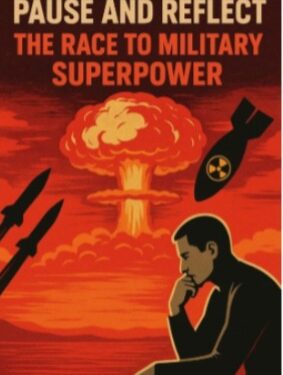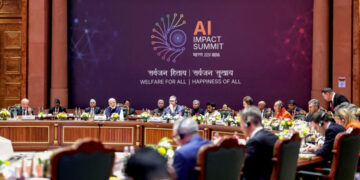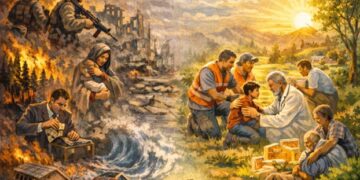The catastrophic legacy of Hiroshima and Nagasaki during the Second World War still reverberates through generations. Even today, the descendants of the victims continue to suffer from the lingering effects of radiation caused by the nuclear bombs. If we pause and reflect on the global race to become a military superpower, it becomes evident that humanity is treading a perilous path, one that risks repeating the destructive patterns of history.
The invention and acquisition of immensely destructive weapons, particularly nuclear arms, is often justified as a deterrent for self-defence. However, this reasoning is inherently double-edged. The race for military supremacy is rarely about mere defence; it is about possessing the power to strike, to dominate, or to assert supremacy over rivals at will. The notion of deterrence, while cloaked in rhetoric, is largely a tool of fear, used by powers and systems to maintain control and to convince citizens to sacrifice basic needs in the name of national security. While nations prioritize ambitious endeavours, such as space exploration, basic humanitarian concerns like feeding the starving are often neglected.
Throughout history, nations under different regimes have continually increased their military spending, often in incremental steps, while failing to adequately address the fundamental welfare of their citizens. Any weapon of mass destruction, whether invented or acquired, is ultimately directed against fellow human beings. These instruments of annihilation can be deployed both internally and externally, depending on the whims or strategies of those in power. Every new weapon brings humanity closer to existential peril, not just for humans, but for all living beings that share this planet.
In the current climate of militarization, the global accumulation of weapons paradoxically increases insecurity rather than safety. Celebrating such technological and military accomplishments without reflection is dangerous. A decision to use these weapons, if made by someone with unstable tendencies, suicidal inclinations, or compromised judgment, could unleash unrepairable devastation on Earth’s inhabitants.
Given the emergence and potential of Artificial Intelligence (AI), many crucial decisions in warfare and governance are increasingly being delegated to machines. Just imagine if an AI system, driven by flawed data or uncontrolled programming, were to make the decision to trigger a bomb. The consequences could be catastrophic. The fusion of AI and military power adds another layer of unpredictability to an already fragile world, where one algorithmic error could cost millions of lives.
This brings us to a fundamental question: is there an alternative path? Must humanity continue to risk annihilation for the sake of power and prestige? As we race toward military dominance, we are simultaneously jeopardizing the very existence of life on our planet. It is time to pause, reflect, and envision a world where human progress is measured not by our capacity to destroy, but by our ability to coexist peacefully with all life on Earth.
Today, many argue that the world is like a jungle, where only the fittest survive. But as evolved human beings, can we not change this? Can we not build a society where safety, peace, and well-being are shared by all? The choice is ours, to continue down the path of fear and destruction, or to pause, reflect, and create a more humane future.






